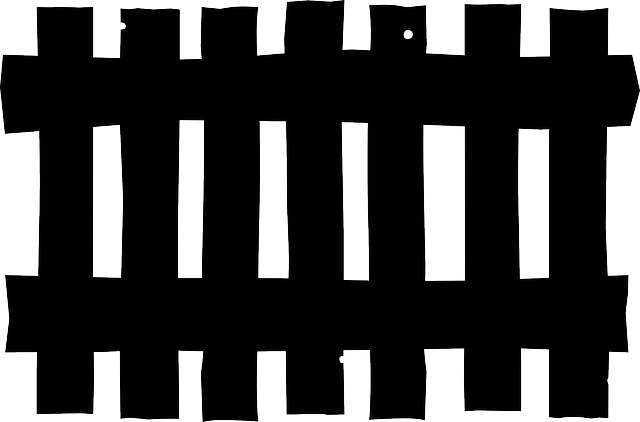In the vibrant business landscape of New Bedford, ensuring robust security measures is paramount. This article delves into the essential role that security fencing plays in safeguarding commercial properties. We explore how these barriers can deter criminal activity, protect valuable assets, and enhance overall peace of mind for New Bedford’s diverse businesses. By examining material choices, design options, installation best practices, maintenance guidelines, and regulatory considerations, this comprehensive guide equips property owners with the knowledge to fortify their commercial spaces effectively.
- Understanding New Bedford's Business Security Needs
- Benefits of Security Fencing for Commercial Spaces
- Choosing the Right Material and Design
- Installation Process: Ensuring Expert Execution
- Maintenance Tips for Longevity and Aesthetics
- Local Regulations and Permits: What Businesses Should Know
Understanding New Bedford's Business Security Needs
New Bedford, as a vibrant business hub, faces diverse security challenges. With a mix of established industries and emerging enterprises, the city’s commercial landscape demands tailored security solutions. From protecting sensitive inventory to safeguarding personnel, each business has unique requirements. For instance, retail stores may prioritize visible barriers to deter theft, while industrial sites require robust fencing to secure perimeters against unauthorized access.
Comprehending these needs is crucial for implementing effective security measures. Business owners must consider factors like local crime patterns, valuable assets, and customer safety. By assessing these elements, they can choose from a range of fencing options—including chain-link, wrought iron, or durable vinyl—that offer both aesthetic appeal and robust security.
Benefits of Security Fencing for Commercial Spaces
Security fencing offers multiple advantages for commercial spaces in New Bedford and beyond. One of its primary benefits is enhanced security, providing a physical barrier against unauthorized access, theft, and vandalism. This is particularly important for businesses storing valuable goods or sensitive information. Well-designed fences can deter potential criminals and create a safer environment for both staff and customers.
Moreover, security fencing contributes to the overall aesthetic appeal of a commercial property. Customizable options allow business owners to choose materials, colors, and styles that align with their branding and architectural design. This fusion of functionality and aesthetics increases the value of the property while ensuring a secure and welcoming atmosphere for clients and employees alike.
Choosing the Right Material and Design
When selecting security fencing for your New Bedford business, choosing the right material and design is paramount. Opting for robust materials like steel or high-density polyethylene (HDPE) ensures durability and strength, deterring potential intruders. These materials are also resistant to rust, rot, and other environmental damage, making them long-lasting investments.
Design plays a crucial role in enhancing security while maintaining aesthetics. Consider options that offer both vertical and horizontal barriers for maximum protection. Customizable designs allow you to match the fence with your business’s unique needs and branding. Additionally, incorporating features like barbed wire, electric fencing, or access control systems can significantly boost security levels, creating a safe and secure environment for your operations.
Installation Process: Ensuring Expert Execution
The installation process for security fencing is a critical phase that requires expert execution to ensure its effectiveness and longevity. Professional installers understand the importance of precise measurements, proper material handling, and adherence to safety standards. They start with thorough site assessments, taking into account the unique needs of each business, including specific security requirements and local regulations.
Using advanced tools and techniques, these experts meticulously plan and execute the fencing installation, ensuring every component is securely fastened and aligned. Regular training and experience equip them to handle complex layouts, challenging terrain, and diverse fence types, from traditional chain link to modern metal or wood alternatives. The end result is a robust security solution that not only safeguards New Bedford businesses but also enhances their aesthetic appeal.
Maintenance Tips for Longevity and Aesthetics
To maintain security fencing and preserve its aesthetic appeal over time, regular cleaning is essential. This involves removing dirt, dust, and debris that can accumulate on the fence’s surface. A soft-bristled brush or garden hose can be used for gentle cleaning. Avoid harsh chemicals as they may damage the fencing material. Regular inspections are also crucial to identify any signs of wear, such as rust in metal fences or cracks in wooden ones. Repairs should be addressed promptly to prevent further deterioration.
Additionally, applying appropriate coatings or treatments can significantly extend the life of your security fence. For metal fences, a fresh coat of paint can protect against corrosion and maintain its appearance. Wooden fences may benefit from regular sealing to guard against moisture damage and insect infestation. These maintenance practices not only ensure the structural integrity of the fencing but also contribute to its visual appeal, enhancing the overall value of New Bedford businesses’ properties.
Local Regulations and Permits: What Businesses Should Know
In New Bedford, business owners must navigate local regulations regarding security fencing to ensure compliance with city codes. Before installing any fence, it’s crucial for businesses to familiarize themselves with zoning laws and permits required by the City of New Bedford. Failure to obtain the necessary permissions can result in fines and potential removal of the structure.
Permits are typically issued through the Building Department, which evaluates applications based on safety, aesthetics, and zoning regulations. Businesses should submit detailed plans outlining fence specifications, including height, materials, and location. It’s recommended to consult with city officials or a local contractor experienced in navigating these processes to ensure a smooth installation without legal complications.
